"The classic tribute to hope from the Holocaust"
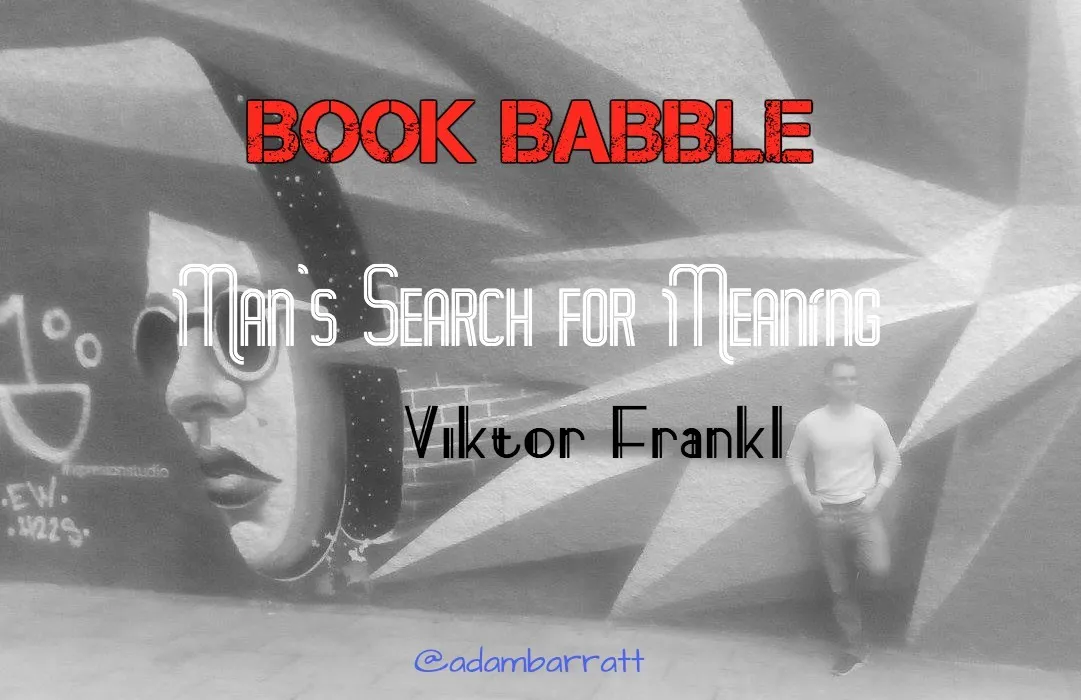
A true classic in a couple of ways here. This book will be well known to most, at least heard of it, and may well have read it.
It's probably 5 years since I read it (once) but it was on my Kindle so I have my highlights, and it's an interesting and deep one worthy of review. So it's not fresh in mind, but let's see what we've got!
We not only have a first-hand account of one man's experience during the Holocaust and at Auschwitz, but also delve deep unto the arm of psychology and existential analysis that Viktor Frankl developed.
He was working on Logotherapy before being captured and tried to keep some of his work going despite being under those conditions (recording and hiding notes on scraps of paper etc). Then later on he was able to develop his theories into what became his signature work.
Of course, he was able to draw on his personal ordeal to influence and apply practical real-world examples in horrific conditions. The perfect training ground as it were, although any 'positives' weren't able to come to light until much later when he was able to pass on his wisdom.
This is the story of Dr Frankl and his life, and a significant search for us all – that being the pursuit of meaning…
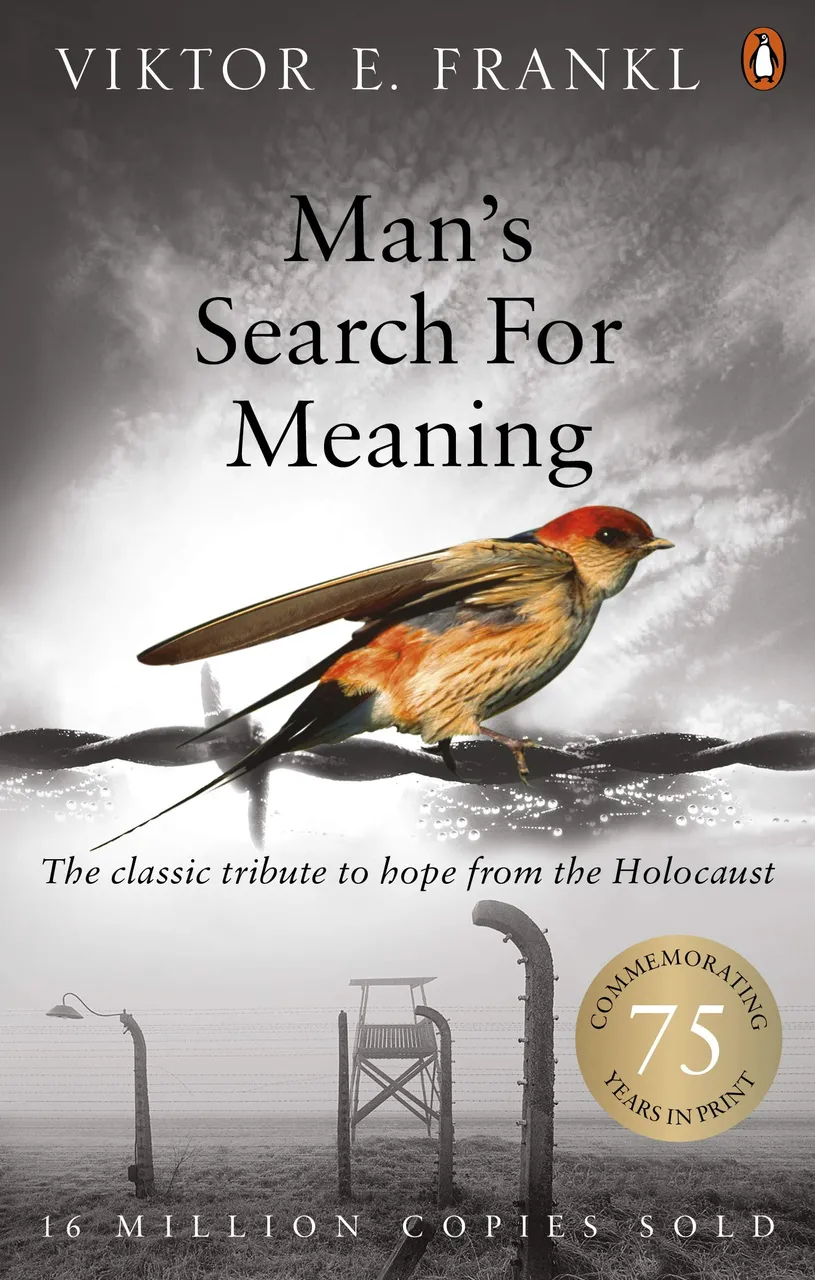
Highlights from the book, followed by my thoughts…
man’s deepest desire is to search for meaning and purpose
And here we have the central theme. Of the book and for many people's lives in one way or another. It's a constant search (and struggle) for many and is one of the deepest philosophical questions, as well as on a practical level.
Nietzsche: “He who has a why to live for can bear almost any how”
This quote is a famous one from the 19th century German philosopher, and is repeated a few times in the book (as well as a fair few times in these articles). You often see it in relation to this very book and situation.
This quote speaks of having a strong 'why' can supersede all that you're going through. Without that motivation though, you have nothing, even if everything is rosy.
hope
Clinging on to something. The idea that where there's life, there's hope and if you can hang in there, you may be in with a chance of not just surviving, but even thriving. Holding on to that glimmer.
something to live for
A motivation (or why) that keeps you going. Ties in with hope above. What's the point? You need something to hold onto, whether that be in extreme circumstances that Frankl found himself in, or just your day to day challenges.
Life is not primarily a quest for pleasure, as Freud believed, or a quest for power, as Alfred Adler taught, but a quest for meaning. The great task for any person is to find meaning in his or her life. Frankl saw three possible sources for meaning: in work (doing something significant), in love (caring for another person, as Frankl held on to the image of his wife through the darkest days in Auschwitz), and in courage in difficult times. Suffering in and of itself is meaningless; we give our suffering meaning by the way in which we respond to it.
Quite a lot to unpack in this quote. Firstly, some different opinions among philosophers and psychologists of the day… some people may well pursue pleasure or power, but perhaps that's not what they really want. Then we get into the 'how' of finding and living meaning.
Suffering is unavoidable to a degree but we need to then give that meaning as we use that going forward. Finding appropriate work is always important, rather than just a pay cheque… or at least finding something that drives you outside of your paid work time.
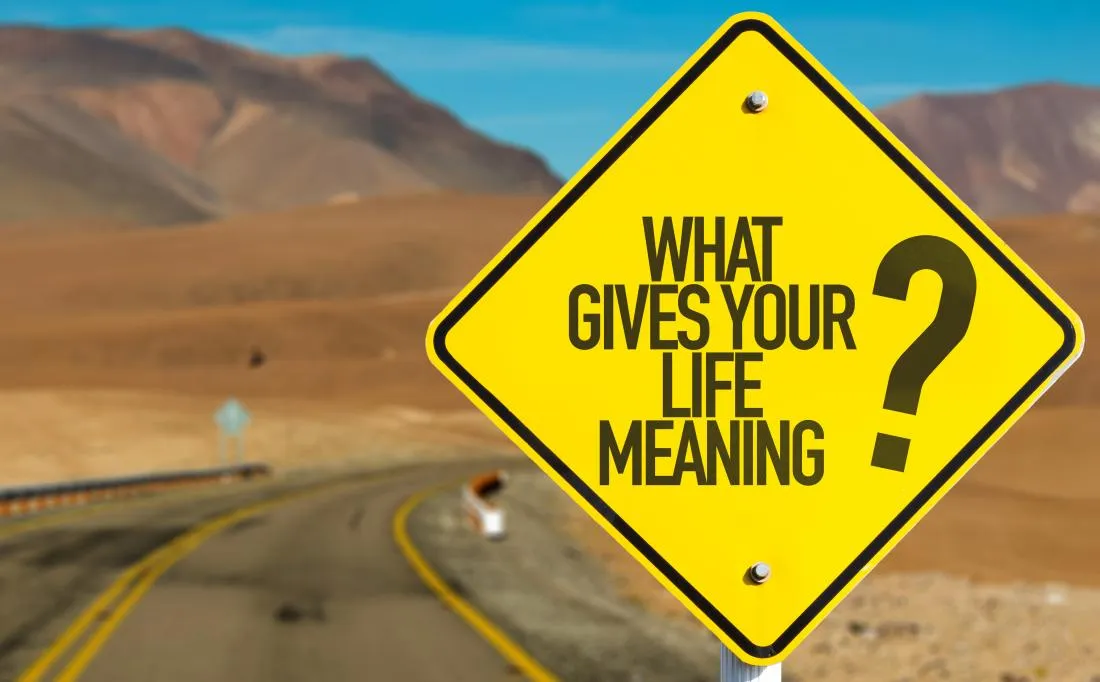
forces beyond your control can take away everything you possess except one thing, your freedom to choose how you will respond to the situation. You cannot control what happens to you in life, but you can always control what you will feel and do about what happens to you.
Controlling the controllable. We've talked a little in these articles about Stoicism and this is one of the central features.
Things will happen 'out there' and you may be able to influence it to a degree, but it's mostly out of your hands. Then you choose your response, and what you do (or not do) from that point. Controlling how you feel is difficult (much is instinctive) but can be done.
life holds a potential meaning under any conditions, even the most miserable ones.
It's a matter of finding it. Napoleon Hill talks about how in every adversity, there's the seed of an equivalent (or even better) benefit. No consolation at the time but it might well be seen looking back.
Any purpose large or small is to be found in all situations.
In psychiatry there is a certain condition known as “delusion of reprieve.” The condemned man, immediately before his execution, gets the illusion that he might be reprieved at the very last minute.
Well, that's optimism for you! Just that small hope that something might happen, and why not hope for the best if you're about to go to the chopping block?
But, there's a fine line between optimism and delusion… the latter being where something genuinely isn't possible and you're clutching at straws.
Another example being the Stockdale Paradox. James Stockdale was an admiral in the US Navy who was captured during the Vietnam war and spent several years at a POW camp. When asked about his coping strategy and those that didn't make it, he said the following:
"Oh, that's easy, the optimists. Oh, they were the ones who said, 'We're going to be out by Christmas.' And Christmas would come, and Christmas would go. Then they'd say, 'We're going to be out by Easter.' And Easter would come, and Easter would go. And then Thanksgiving, and then it would be Christmas again. And they died of a broken heart. This is a very important lesson. You must never confuse faith that you will prevail in the end—which you can never afford to lose—with the discipline to confront the most brutal facts of your current reality, whatever they might be." Source
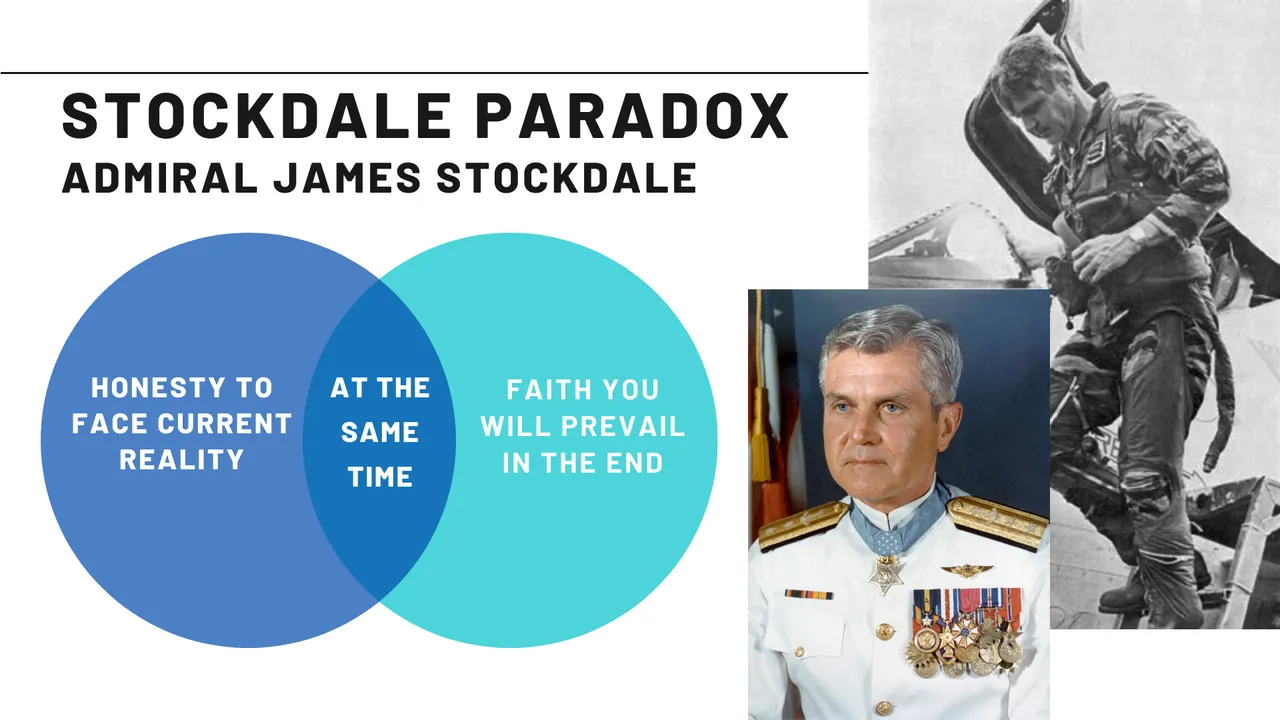
The point is a balance. We do need to be positive, but if we go too far we're going to be disappointed and end up with the opposite effect. A healthy dose of realism is important too. So… we fully expect it to turn out well eventually but know that it will take a long time (probably longer than we think) and it won't be a smooth path.
curiosity
Being curious is the starting point for finding what you want to do and why. Certain things pique your interest, and they should be pursued and studied until you decide if you want to go further or perhaps that it isn't for you.
Having that curious nature helps you get involved in things and with people, and something is bound to take.
The truth—that love is the ultimate and the highest goal to which man can aspire.
It's one of the highest energy emotions. You can check out the recent BookBabble Letting Go as that talks about the levels of consciousness. That would suggest you can go beyond that, but at a regular human level, this is the goal we all want to aspire to.
The attempt to develop a sense of humor and to see things in a humorous light is some kind of a trick learned while mastering the art of living.
Everything should be surrounded by humour. Yes, there's a time and a place for a more serious nature, but injecting some amusement has to be worth it in all situations where possible.
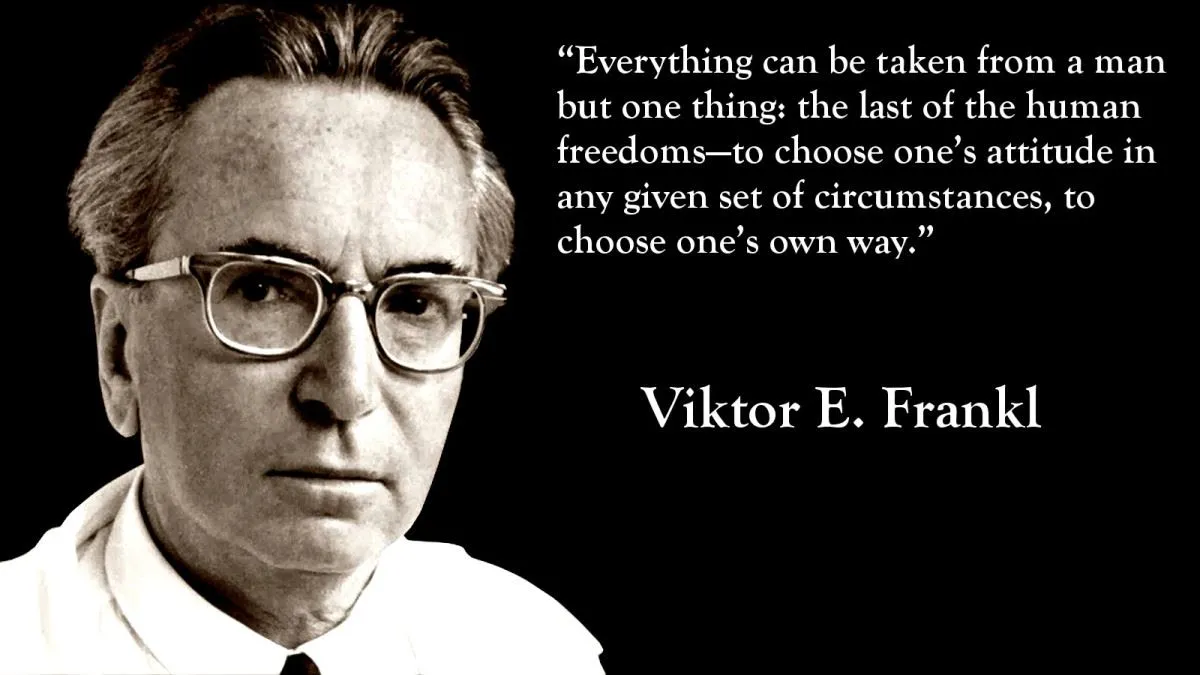
everything can be taken from a man but one thing: the last of the human freedoms—to choose one’s attitude in any given set of circumstances, to choose one’s own way.
You may well have seen this quote dotted around too, as it's a central theme of the author's plight and used in much literature.
It goes back to controlling the controllable, and even though everything may have been taken from you, you can choose your attitude and path from that point.
I succeeded somehow in rising above the situation, above the sufferings of the moment, and I observed them as if they were already of the past.
And here is a prime example, when Viktor was in the concentration camps. Perhaps detaching himself to a degree and seeing himself as someone who has moved on.
any attempt to restore a man’s inner strength in the camp had first to succeed in showing him some future goal.
Future pacing. Having some larger vision that they are heading towards and not getting bogged down in the day-to-day of their predicament.
What About Logotherapy?
Logos is a Greek word which denotes “meaning.”
There you go… Logos = meaning. Makes sense – the therapy of meaning.
logotherapy, in comparison with psychoanalysis, is a method less retrospective and less introspective.
There is also some cross-over with the Japanese concept of Ikigai. I wrote a BookBabble a few years back on that very idea, and Logotherapy was mentioned a few times in that article.
Logotherapy focuses rather on the future, that is to say, on the meanings to be fulfilled by the patient in his future.
Having the vision of the future, holding on to it, and knowing it's coming. What's happening now is almost irrelevant to a degree… the meaning that will soon be pursued and attained are where the focus lies.
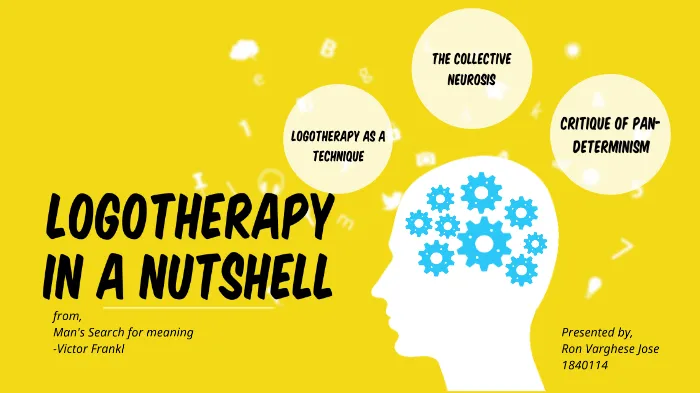
Logotherapy regards its assignment as that of assisting the patient to find meaning in his life.
That's the central tenet, and here are the steps to it:
- A person feels empty, frustrated, or anxious.
- The therapist shows him that what he is feeling is the desire to have a meaningful life.
- The patient discovers his life’s purpose (at that particular point in time).
- Of his own free will, the patient decides to accept or reject that destiny.
- This newfound passion for life helps him overcome obstacles and sorrows.
mental health is based on a certain degree of tension, the tension between what one has already achieved and what one still ought to accomplish, or the gap between what one is and what one should become.
That itching to become more and reach your potential. There's that merry dance between where you are and where you think you should be. This can cause some discord of course; sometimes that's good as it spurs you into action and improvement, other times it makes you feel bad and keeps you stuck. That ongoing tension is what mental health is after all.
What man actually needs is not a tensionless state but rather the striving and struggling for a worthwhile goal, a freely chosen task.
You don't really want pure comfort. You want some discomfort most of the time in order to shake you and give you purpose, but also be comfortable enough to enjoy it as you go. Quite the conundrum!
Sunday neurosis
This is a term coined by Frankl and is when you get a kind of depression on down days… like a Sunday when it's quieter and the busyness isn't there. You become aware of the lack of content in your life, which causes a questioning.
Get back into work on Monday and that fizzles out, but it's there in those quieter times and you need to have the answer (if one is necessary).
the meaning of life differs from man to man, from day to day and from hour to hour.
It never stays the same, and is always in a state of flux. Not only between different people, but the same person at different times in their life, whether that be over many years or within a day.
What matters, therefore, is not the meaning of life in general but rather the specific meaning of a person’s life at a given moment.
Life is built on moments, and it's a collection of these short passages that make up the whole. What is the meaning of it right now?
The more one forgets himself—by giving himself to a cause to serve or another person to love—the more human he is and the more he actualizes himself.
It's not just about the individual, and everyone needs to get out of their own heads and offer service to others in some way. It can be a bit lonely (and pointless) if it's only about you, so there needs to be some integration there which will give pleasure to all (not least the individual).
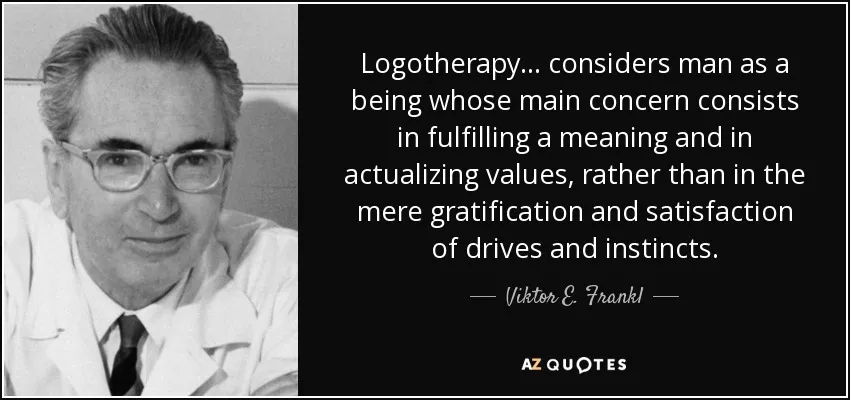
According to logotherapy, we can discover this meaning in life in three different ways: (1) by creating a work or doing a deed; (2) by experiencing something or encountering someone; and (3) by the attitude we take toward unavoidable suffering.
Here are some ways to go about it. I once read that when you're 'not feeling it' then either to create something or go help someone else. This ties in, in that you need to make something that wasn't around before, do something for another that helps them, or have new experiences. These take us out the drudgery and help us to find meaning in the small and short-term, and potentially the larger and long-term.
every human being has the freedom to change at any instant.
This is an empowering thought. Every moment is another opportunity… and it can happen quickly. This is a very optimistic way of thinking and puts you in a state of positive expectation.
It may seem that you're shackled, but there are options at any given time, and it just takes a decision then an action and things can change.
A human being is not one thing among others; things determine each other, but man is ultimately self-determining. What he becomes—within the limits of endowment and environment—he has made out of himself.
Each person is responsible for themselves but they also fit into the whole. Everybody needs to find their own meaning and purpose and do so in harmony with the rest.
Thanks Viktor! Anything Else?
A tale of 2 halves with this book. If you want to read more on what went on from a prisoner's perspective, then you have that here. Then in the second half it becomes more of a psychology work in discussing the theories and practices of Logotherapy.
It's not pretty, and nor should it be but it's a well told account of what Frankl went through. And as for Logotherapy et al, a very interesting study into a branch of psychology (along with philosophy) that has cross-over with others and may just hold the 'answers' for many (or at least guide them along the way).
And as for meaning? The search goes on for us all! ;)
First image my own, others linked to source
Check out the others in the series…
- SHOE DOG - Phil Knight
- CRUSHING IT - Gary Vaynerchuk
- FINDING ULTRA - Rich Roll
- WOODEN - John Wooden
- RELENTLESS - Tim Grover
- ON WRITING - Stephen King
- START WITH WHY - Simon Sinek
- THE CHIMP PARADOX - Steve Peters
- ELON MUSK - Ashlee Vance
- WAY OF THE WOLF - Jordan Belfort
- THE SUBTLE ART… - Mark Manson
- GORILLA MINDSET - Mike Cernovich
- THE 10X RULE - Grant Cardone
- FLOW - Mihaly Csikszentmihalyi
- THE GO-GIVER - Bob Burg & John D. Mann
- BE OBSESSED OR BE AVERAGE - Grant Cardone
- NEVER SPLIT THE DIFFERENCE - Chris Voss
- IKIGAI - Héctor García & Francesc Miralles
- THE 5 SECOND RULE - Mel Robbins
- YOU ARE THE PLACEBO - Dr. Joe Dispenza
- DEEP WORK - Cal Newport
- CREATIVE MISCHIEF - Dave Trott
- THE E-MYTH REVISITED - Michael E. Gerber
- THE PERFECT DAY FORMULA - Craig Ballantyne
- SO GOOD THEY CAN'T IGNORE YOU - Cal Newport
- ATOMIC HABITS - James Clear
- OUTWITTING THE DEVIL - Napoleon Hill
- CAN'T HURT ME - David Goggins
- 50 MARATHONS IN 50 DAYS - Dean Karnazes
- GREENLIGHTS - Matthew McConaughey
- THE GLADIATOR MINDSET - Adam Peaty
- OPEN: AN AUTOBIOGRAPHY - Andre Agassi
- THE 1% RULE - Tommy Baker
- THE 5 LOVE LANGUAGES - Gary Chapman
- THE BRAIN THAT CHANGES ITSELF - Norman Doidge
- THE WAR OF ART - Steven Pressfield
- PREDICTABLY IRRATIONAL - Dan Ariely
- BORN TO RUN - Christopher McDougall
- THE ALMANACK OF NAVAL RAVIKANT - Eric Jorgenson
- ESSENTIALISM - Greg McKeown
- EAT & RUN - Scott Jurek
- THAT WILL NEVER WORK - Marc Randolph
- THE SECRET RACE - Tyler Hamilton
- 12 RULES FOR LIFE - Jordan Peterson
- THE GREATEST SALESMAN IN THE WORLD - Og Mandino
- THE MAGIC OF THINKING BIG - David Schwartz
- THINKING, FAST AND SLOW - Daniel Kahneman
- LETTING GO - David Hawkins
- MAN'S SEARCH FOR MEANING - Viktor Frankl
- NEVER FINISHED - David Goggins